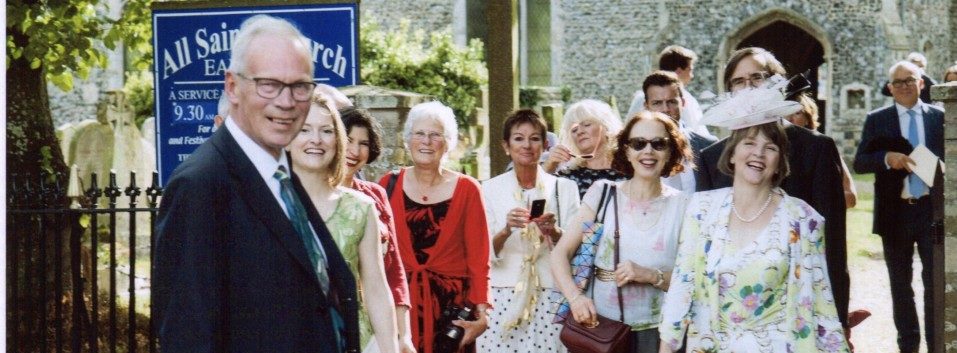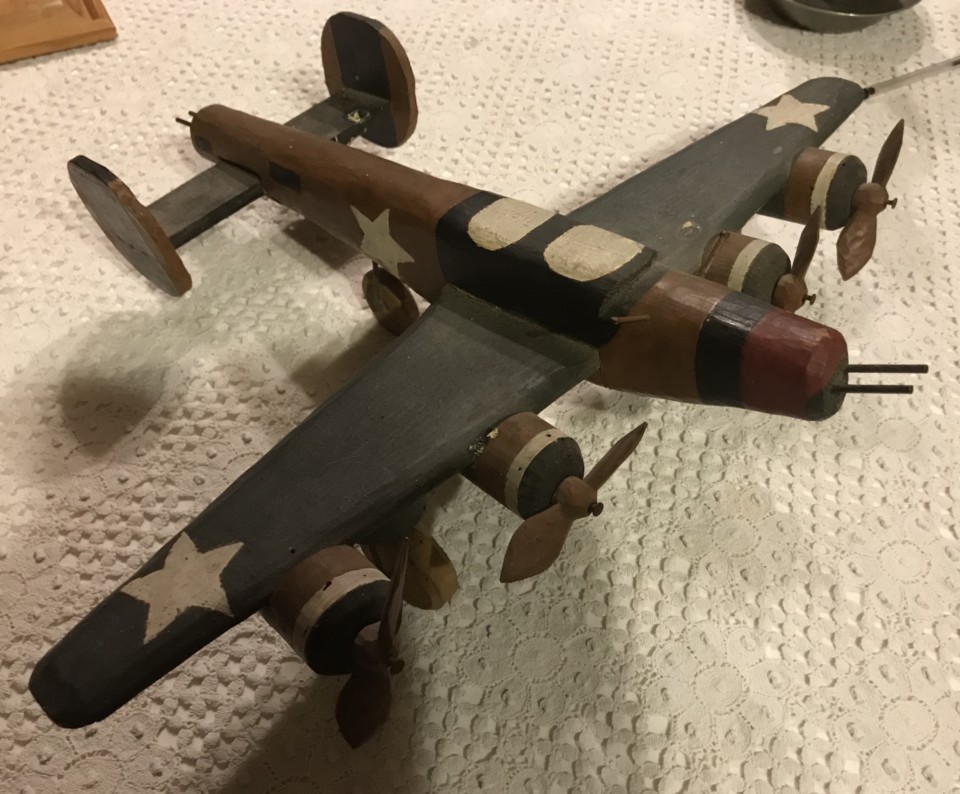I’ll take a better photo when I think of it in daylight and it won’t have a biro or the remains of dinner dishes at the edges. But here is the plane.
Such a lot of work has gone into it, it’s wonderful. Whittled on the way back from bombing raids and painted back at the station.
Russell and his brother and sister played together of course, with the Sprig taking the minor role as he was the youngest and Austin, the eldest, was a very dominant character. No question of being kind to the smaller ones, he ruled. They had a long-standing game in which each took a character – Austin was PC Ramsbottom, June was Mrs Tissell and Russell was Sprig (I can’t remember his character name, so his family nickname will have to do). I’ve no idea what the game entailed but if you’ve ever done such a thing with your family or friends, you’ll know the sort of thing. It sometimes involved tree climbing by Austin when he dropped bits of chewed apple on his siblings’ heads, calling them mineral deposits. No, I didn’t like Austin very much, I daresay you can tell but, as I said in a previous post, he could do no wrong in his parents’ eyes.
I’m not sure what local friends they had, apart from one, who has retired to the area, is still a dear friend and is the same age as June. I’ll call her Jo, though that isn’t her name. June was invited round for tea – this must have been in the 30s before the war, because it was clearly before rationing. They were an upper-crust family and rules were rather stricter than at home. Slices of bread were on the tea table and June was asked by her polite hostess, Jo’s mother, if she’d like butter or jam on her bread? June blithely asked for both, which drew a reaction like a Bateman cartoon. Definitely one or the other in that family. She was given both but evidently a tactful word was had between mamas, because June came to know that she’d done the wrong thing.
I’m not sure that would have bothered her too much. She always had a mischievous side. Ma was a kind and dutiful member of the community and regularly sent goodies round to single, poorer acquaintances. One of them, whose name wasn’t Miss Clapham* but wasn’t far off it (I can’t remember, but it may come to me) was an awkward old thing. June would be sent round with a jar of home-made soup. “Oh, how very kind of your mother – I had rather been hoping for some strawberry jam, but this will do.” So one day, she filled her basket with various foodstuffs and proffered the strawberry jam, as directed. “Oh, your mother is so kind to have thought of me. I’d really hoped for some blackberry jelly…” June smartly assured her that would be quite all right, she took back the jam and gave a pot of jelly instead. Miss Clapham was as discomfited as June had wanted – June was fed up with her mother’s kindness being treated so – and she went home in triumph. Of course, in gleefully reporting what had happened, she was reprimanded for cheek and bad manners and told she must never do such a thing again. And indeed, Miss Clapham was one of the unfortunate ladies who’d lost her chance to marry because of the first world war, looked after her parents until their deaths and then, from her forties onwards, lived in genteel poverty, too respectable to get a job and not wealthy enough to enjoy much freedom. Think Miss Bates in Jane Austen’s Emma.
*Miss Clutton. It did return to me 🙂

